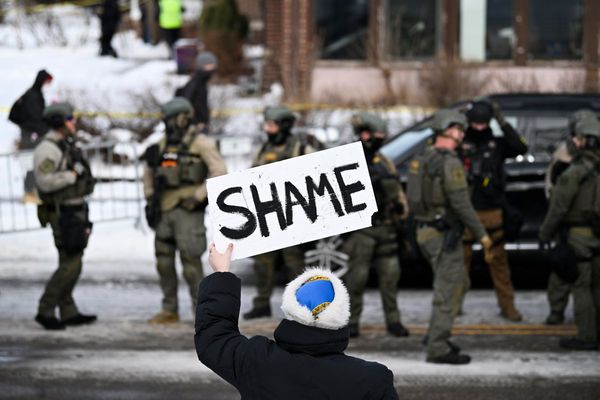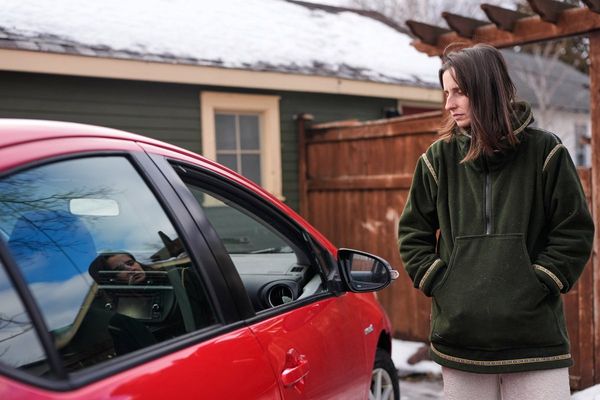The Israel Defense Forces (IDF) are refusing to implement a government plan to move hundreds of thousands of Palestinians into a what it calls a “humanitarian city” in Rafah on Gaza’s southern border with Egypt. Lieutenant General Eyal Zamir, chief of the IDF general staff said the plan was not part of the military’s operational plan for destroying Hamas and freeing the remaining hostages.
Army reservists have reportedly also complained that the plan amounts to a war crime. In my view as an expert in international law, they are correct. Forcibly relocating a population is prohibited, even in war. It is also a crime against humanity and could even amount, under certain circumstances, to genocide.
There is some important historical context to consider before examining the legal issues at play.
Sign up to receive our weekly World Affairs Briefing newsletter from The Conversation in the UK. Every Thursday we’ll bring you expert analysis of the big stories in international relations.
The prosecution of crimes against humanity first took place at the Nuremberg trials of surviving senior Nazis after the second world war. By that time the idea of war crimes was clearly established – but they tended to concern what you should not do to the enemy civilian population.
The problem was that the worst atrocities of the Nazis were committed against their own people – the German Jews (and many, many others too). The idea of crimes against humanity was created to fill this gap, and was used to prosecute the surviving masterminds of the Holocaust.
Conditions for a ‘crime against humanity’
Crimes against humanity are a category that contains several separate crimes. If the right conditions are there, you might talk about “the crime against humanity of murder” or the “crime against humanity of rape”. The conditions are that the underpinning crime takes place against a backdrop of a “widespread or systematic” attack on a civilian population.
The attack does not have to include a literal armed attack: apartheid, for example, was established as a crime against humanity in 1973 in response to the policies of the South African government. It is also not necessary that there is an armed conflict for a particular crime to be a crime against humanity.
Within the category of crimes against humanity is included “deportation and forcible transfer” (see article 7 of the Rome statute of the International Criminal Court).
This is what the Israeli government’s plan for moving Palestinians into a “humanitarian city” would appear to amount to. If the plan stopped at leaving Gazan Palestinians in Rafah then it would be “forcible transfer”, and if they were relocated to another country it would be “deportation”.
Coercion is key to the crime of forcible transfer. It’s fanciful to think that every single Gazan civilian would want to move to Rafah in circumstances where they would be security-checked on entry and thereafter forbidden from leaving.
How could a liveable city, with all the infrastructure needed, even be created? What of the dentists, doctors, teachers, lawyers, mechanics, entrepreneurs and anyone else who was able to make an honest living? Will they really be given a place to carry out their work?
Ethnic cleansing
The term “ethnic cleansing” is sometimes used to describe what is being proposed by the Israeli government. I dislike the term, and it has no meaning in law. It became a commonly used term during the 1990s conflict in the former Yugoslavia when ethnic Serbs, and in some instances ethnic Croats, expelled hundreds of thousands of people of any other ethnicity out of the territory that they held.
For this practice, the president of the former Yugoslavia, Slobodan Milošević, and a string of Bosnian Serb and Bosnian Croat leaders were charged with crimes against humanity by the International Criminal Tribunal for the former Yugoslavia (ICTY).
Milošević died before the ICTY could deliver a verdict in his case, but many others were found guilty. The actions of the Bosnian Serb forces in the town of Srebrenica were even found by the ICTY to have been an act of genocide, because they were not just expelling non-Serbs but wiping them out: at one point in July 1995 they killed around 8,000 men and boys in just a few days.
A lot would depend on the conditions in which the Palestinians would live in the “humanitarian city”. If they were deprived of sufficient food and medical supplies in a way that could only be seen as intended to lead to their deaths, then that too could be held to qualify as an act of genocide.
Justice and accountability
It is clear to me that the forced relocation of Gazans to a “humanitarian city” would violate international law. What is not so clear cut is how to hold its instigators to account.
There are already arrest warrants issued by the International Criminal Court (ICC) for Israel’s prime minister, Benjamin Netanyahu, and his former defence minister, Yoav Gallant. But there is no international police force and so the ICC relies on participating states to arrest suspects on its behalf. Hungary welcomed Netanyahu in April this year, while announcing it would withdraw from the ICC.
In the same way, Netanyahu flew to Washington DC this week to meet with Donald Trump, but was not arrested because the US doesn’t recognise the ICC. During his visit, Netanyahu announced he would be nominating Trump for the Nobel peace prize.
South Africa has also sought to hold the state of Israel to account at the International Court of Justice, alleging the crime of genocide. The court has yet to rule, saying only that it is plausible that acts of genocide might occur in Gaza.
Since Hamas launched its vicious attack on Isreal on the October 7 2023, there has been constant violence and massive loss of life in the region. However, the proposed “humanitarian city” is not, in my view, a lawful route to peace and stability. As for anyone actually facing justice for the many atrocities that we have seen, an international consensus in favour simply doesn’t exist. And, in the current climate, there’s little sign that it will exist any time soon.
James Sweeney does not work for, consult, own shares in or receive funding from any company or organisation that would benefit from this article, and has disclosed no relevant affiliations beyond their academic appointment.
This article was originally published on The Conversation. Read the original article.







